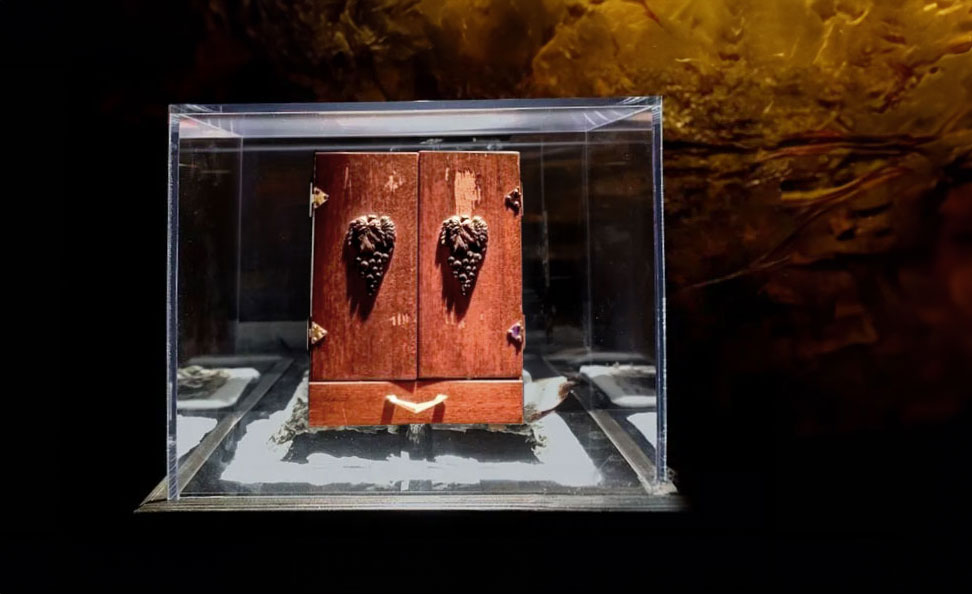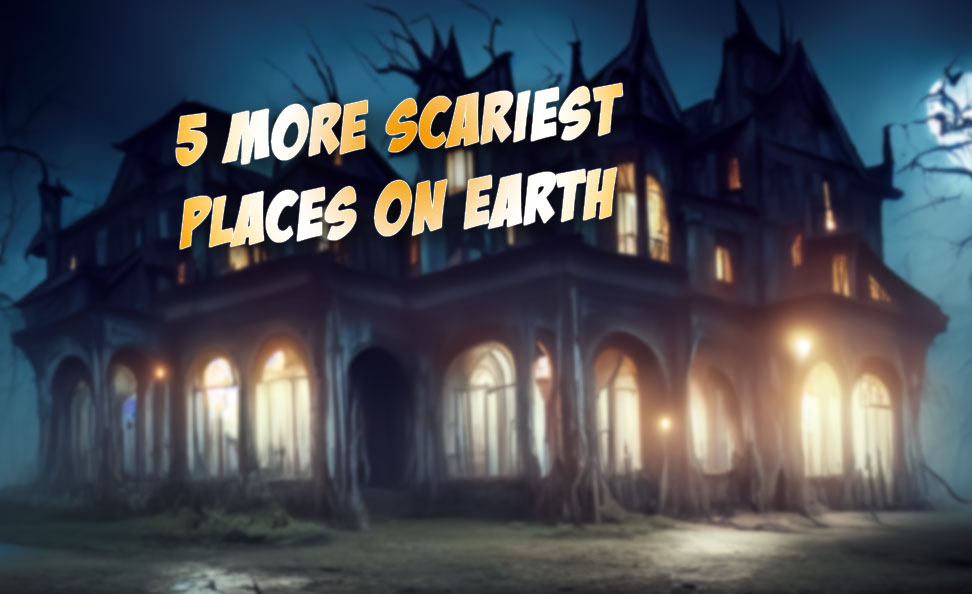Let’s look at 5 apocalyptic doomsday predictions and failed predictions that didn’t come true and how they got it so wrong. We will look at Y2K Bug, Harold Camping’s Rapture, Nibiru Collision with Earth, Large Hadron Collider Destroying Earth and End Times as Prophesied by Nostradamus. For each prediction, we’ll provide a description, how it was predicted to play out and how it actually played out in reality.
Throughout history, people have made predictions about the end of the world. Some of these predictions have been based on religious beliefs or scientific theories while others were simply wild guesses.
By looking back on these false prophecies, we can gain insight into why some predictions fail to materialize and learn from our mistakes for future generations.
Apocalypse Now? Exploring the Most Terrifying Doomsday Predictions Throughout History and the Shocking Truth Behind Them!
Apocalyptic doomsday predictions have been a part of human culture for centuries. These are prophecies about an imminent catastrophic event that will lead to the end of the world as we know it. The idea of doomsday is fascinating to many people because it represents the ultimate challenge to our existence and survival.
Throughout history, there have been countless doomsday predictions and failed predictions, ranging from religious and supernatural prophecies to scientific theories about global apocalptic disasters. While many of these predictions have failed to come true, they still captivate our imaginations and inspire us to think about the fragility of life on Earth.
One of the earliest recorded doomsday predictions and failed predictions was made by the ancient Mayan civilization. The Mayan calendar ended on December 21, 2012, and many people believed that this date marked the end of the world. However, this prediction turned out to be false, and life on Earth continued as usual.

In recent years, scientific doomsday predictions have become more prevalent. Climate change and the threat of global warming have led many scientists to predict that the Earth’s climate will become increasingly unstable, leading to widespread environmental disasters.
Another popular apocalyptic doomsday prediction is the threat of an asteroid impact. While the probability of an asteroid hitting the Earth is low, the potential consequences of such an event could be catastrophic. Some scientists believe that an asteroid impact could lead to a mass extinction event, similar to the one that wiped out the dinosaurs.
Despite the prevalence of doomsday predictions, many of these prophecies have failed to come true and remain failed predictions.
Should we be grateful?
Countdown to Chaos: The Apocalyptic Y2K Bug that Almost Destroyed the World! Find Out How We Dodged Digital Annihilation and What Really Happened!
In the late 1990s, there was widespread concern about the so-called “Y2K bug,” which was predicted to cause a massive computer failure and potentially lead to widespread chaos and societal collapse. The Y2K bug was the result of the way computers stored dates: using two digits for the year instead of four.
This made it difficult for computers to distinguish between the year 1900 and the year 2000. As the year 2000 approached, many feared that this would cause computer systems to fail and wreak havoc on everything from financial markets to transportation systems.

Governments and businesses around the world spent billions of dollars preparing for the worst, but it remained unclear how much of an impact the Y2K bug would actually have.
How It Was Predicted To Play Out
As the year 2000 approached, the world was gripped by fears of the Y2K bug, which was predicted to cause a massive apocalyptic computer failure and potentially lead to widespread chaos and societal collapse. The Y2K bug was the result of the way computers stored dates: using two digits for the year instead of four. This made it difficult for computers to distinguish between the year 1900 and the year 2000.

Experts warned that the Y2K bug could lead to a range of catastrophic outcomes. Financial markets could crash, causing widespread economic turmoil. Transportation systems could fail, leaving people stranded and unable to travel. Power grids could go down, causing blackouts and leaving entire regions in the dark. And with so much of modern society reliant on computers and technology, the potential for widespread apocalyptic disruption was immense.
Governments and businesses around the world spent billions of dollars preparing for the worst. Computer systems were updated, code was rewritten, and contingency plans were put in place. But despite these efforts, many remained deeply concerned about the potential impact of the Y2K bug.
In the months leading up to the turn of the millennium, panic began to set in. People began stockpiling food, water, and other supplies, in case the worst-case scenario came to pass. Some even prepared to flee their homes and head for the hills, fearing that civilization was on the brink of collapse.
As the clock ticked down to midnight on December 31, 1999, the world held its breath. Would the Y2K bug bring about the end of the world as we knew it, or would it turn out to be a false alarm?
Only time would tell.
How It Actually Played Out
When the clock struck midnight on December 31, 1999, the world waited with bated breath to see what would happen. Would the Y2K bug cause widespread chaos and societal collapse, as many had feared?
As it turned out, the answer was a resounding “no.” While there were some minor glitches and issues in computer systems around the world, the Y2K bug did not lead to the widespread apocalyptic disaster that had been predicted.

In the United States, the Federal Emergency Management Agency reported only a handful of Y2K-related incidents, including problems with credit card machines and some minor power outages. In other countries, there were similarly few reports of serious problems and failed predictions.
This was not to say that the preparations that had been made were unnecessary. The massive effort to update computer systems and prepare for potential problems likely helped to mitigate the impact of the Y2K bug. And there were some incidents that could have been more serious, had they not been caught in time.
But overall, the Y2K bug did not live up to its apocalyptic doomsday predictions. The world did not end, financial markets did not crash, and civilization did not collapse. In fact, the year 2000 turned out to be a time of failed predictions, relative stability and prosperity.
The Y2K bug serves as a reminder of the importance of being prepared for potential disasters, but also of the danger of getting caught up in panic and fear. While it’s always important to take threats seriously and prepare accordingly, it’s also important to maintain a sense of perspective and not give in to doomsday predictions without cause.
Apocalyptic Chaos or Divine Intervention? Inside Harold Camping's Shocking Rapture Prediction of 2011!

Image used under “Fair Use”
In 2011, Harold Camping, a Christian radio broadcaster and founder of Family Radio Worldwide, made headlines around the world when he predicted that the Rapture – an apocalyptic biblical event in which Christians are taken up to heaven – would take place on May 21, 2011.
Camping had made similar, but failed predictions in the past, but this one was particularly noteworthy because of the level of attention it received in the media and on social media. Many people were fascinated by the idea that the end of the world could be just around the corner, and Camping’s followers began spreading the word far and wide.
Despite widespread skepticism and criticism from religious leaders and others, Camping remained steadfast in his belief that the Rapture was imminent. He went so far as to purchase billboards around the country to promote his apocalytpic prediction, and even produced a documentary about the end of the world.
As May 21, 2011 approached, many people around the world began to prepare for the worst. Some sold their possessions and quit their jobs, while others organized parties to celebrate what they believed would be their last days on earth.
How It Was Predicted To Play Out
According to Camping’s prediction, the Rapture would be followed by a series of cataclysmic events that would ultimately lead to the end of the world.
Camping claimed that the Rapture would be a sudden and violent event, in which believers would be taken up to heaven while the rest of the world would be left behind to face a series of devastating disasters. These disasters would include earthquakes, tsunamis, and other natural disasters, as well as war, famine, and disease.
Camping’s apocalyptic prediction gained widespread attention in the media and on social media, with many people around the world preparing for the worst. Some sold their possessions and quit their jobs, while others organized parties to celebrate what they believed would be their last days on earth.

Camping himself was also heavily involved in promoting his prediction, purchasing billboards around the country to spread the word and producing a documentary about the end of the world.
As May 21, 2011 approached, the anticipation and fear continued to build. Many people around the world waited anxiously to see if Camping’s prediction would come true and if the end of the world was truly at hand.
How It Actually Played Out
On May 21, 2011, the world waited anxiously for the predicted an apocalyptic Rapture to take place. According to Harold Camping, a Christian radio broadcaster and founder of Family Radio Worldwide, the Rapture was supposed to be a sudden and violent event in which believers would be taken up to heaven while the rest of the world would be left behind to face a series of devastating disasters.

However, as the day came and went, it became clear that the predicted chaos did not materialize. The Rapture did not take place, and in the face of failed predictions, the world continued on as usual.
Despite the failure of his prediction, Harold Camping refused to admit that he was wrong. He instead claimed that his prediction had been “spiritual” and that the world would still come to an end on October 21, 2011.
When October 21, 2011 arrived, however, nothing happened. Once again, Camping’s apocalyptic prediction had been proven false.
The aftermath of the failed predictions was significant. Many of Camping’s followers were left disillusioned and confused, and some were left in financial ruin after selling their possessions and quitting their jobs in anticipation of the end of the world.
Camping himself was also heavily criticized for his failed predictions, with many accusing him of preying on people’s fears and exploiting their religious beliefs for personal gain.
End of the World on December 21, 2012? The Truth About the Nibiru Collision with Earth You Need to Know!
The year 2012 was shrouded in mystery and uncertainty as rumors of an impending doomsday began to circulate. According to a conspiracy theory that gained widespread attention, the planet Nibiru was on an apocalyptic collision course with Earth, set to bring about the end of the world as we knew it.
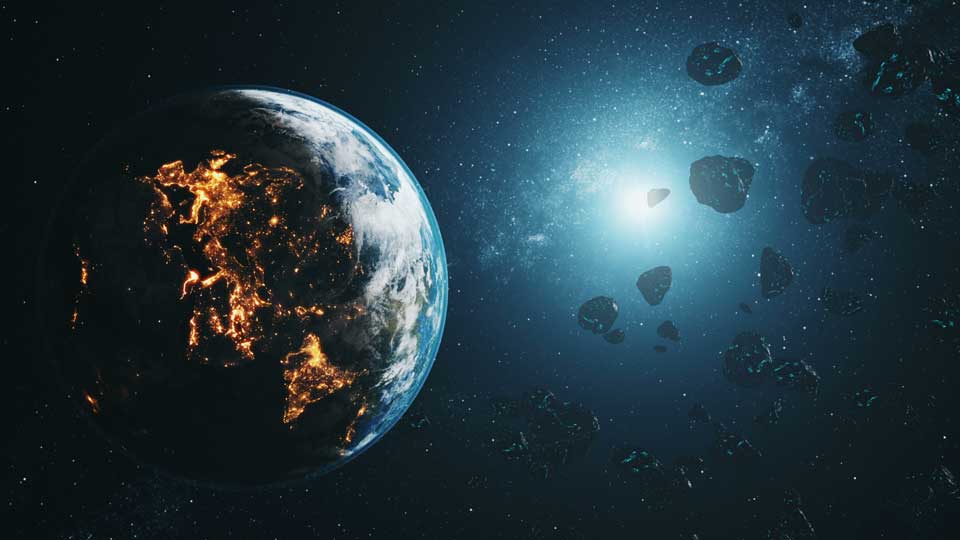
Proponents of the theory claimed that Nibiru, also known as Planet X, was a rogue planet lurking in the outer reaches of our solar system. They claimed that the planet had a highly elliptical orbit that brought it close to Earth once every 3,600 years, and that its approach in 2012 would result in catastrophic consequences for our planet.
As the supposed date of the collision approached, many people began to panic. Some prepared for the end of the world by stockpiling supplies and building underground bunkers, while others took to the streets in protest or turned to religion in search of salvation.
Despite the widespread fear and uncertainty surrounding the Nibiru Collision with Earth of 2012, there were also many skeptics who dismissed the theory as nothing more than a hoax. They pointed to the lack of scientific evidence to support the existence of Nibiru, and argued that the predictions of an impending collision were based on nothing more than speculation and fear-mongering.
As the world held its breath and waited for the supposed collision to occur, the question on everyone’s mind was: would the apocalyptic doomsday predictions prove to be true, or would they turn out to be just another example of failed predictions and baseless fear-mongering?
How It Was Predicted To Play Out
The Nibiru Collision with Earth of 2012 was one of the most sensational doomsday predictions of modern times. According to the theory, the planet Nibiru, also known as Planet X, was on a collision course with Earth, set to cause catastrophic damage and wipe out all life on the planet.
Proponents of the theory claimed that Nibiru was a rogue planet lurking on the edge of our solar system, with an orbit that brought it close to Earth once every 3,600 years. They claimed that the gravitational forces of Nibiru would cause devastating earthquakes, volcanic eruptions, and tsunamis, leading to widespread destruction and chaos.
In addition to the natural disasters, the Nibiru Collision was also supposed to trigger a variety of other apocalyptic and catastrophic events. Proponents of the theory claimed that the collision would lead to a pole shift, causing massive disruptions to the Earth’s magnetic field and leading to widespread power outages and communications failures.
The collision was also said to release deadly gases and radiation, leading to a mass extinction event that would wipe out most of the planet’s flora and fauna.
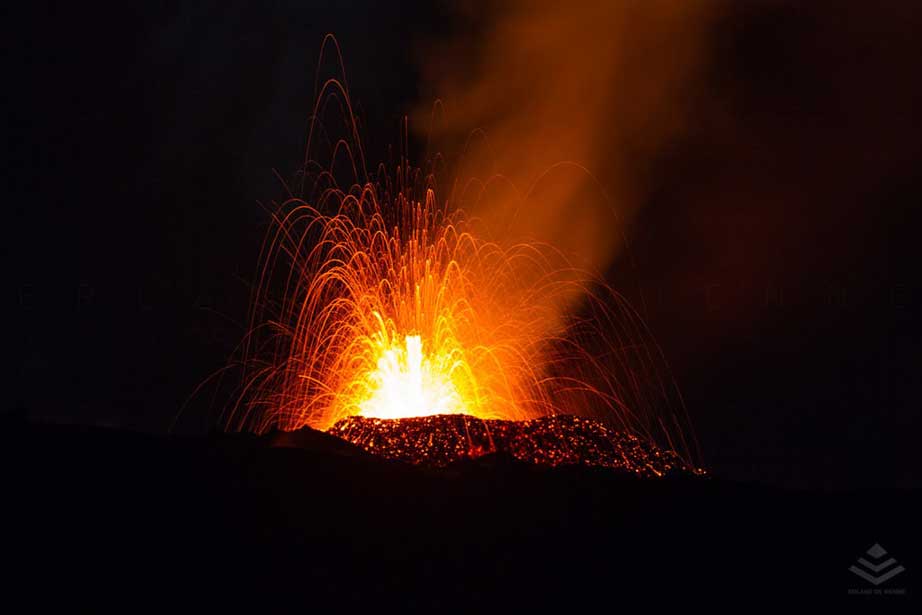
Erland De Vienne, CC BY-SA 3.0 https://creativecommons.org/licenses/by-sa/3.0, via Wikimedia Commons
Some proponents of the theory even claimed that the collision would trigger a global economic collapse and the breakdown of society as we know it.
As the supposed date of the collision approached, many people began to panic. Some prepared for the end of the world by stockpiling supplies and building underground bunkers, while others turned to religion in search of salvation. Many people were convinced that the Nibiru Collision with Earth was a real and imminent threat.
How It Actually Played Out

Despite the hype and fear surrounding the Nibiru Collision with Earth of 2012, the predicted doomsday event never actually happened. December 21, 2012, came and went without any signs of a rogue planet crashing into Earth.
In reality, the theory of the Nibiru Collision was a baseless conspiracy theory with no scientific evidence to support it. The idea of a planet lurking on the edge of our solar system with an orbit that brought it close to Earth every 3,600 years was nothing more than a myth in a long string of failed predictions. There was no evidence of such a planet, and astronomers had been searching the skies for decades without finding anything resembling Nibiru.
Scientists had also repeatedly debunked the claims that the gravitational forces of Nibiru would cause catastrophic earthquakes, volcanic eruptions, and tsunamis on Earth. The supposed pole shift that would disrupt the Earth’s magnetic field and lead to widespread power outages and communications failures was also a baseless claim.
The lack of any credible evidence supporting the apocalyptic Nibiru Collision theory led many people to conclude that it was a hoax or a scam. Despite this, the doomsday prediction managed to gain a massive following, with millions of people around the world convinced that the end of the world was nigh.
In the end, the Nibiru Collision with Earth of 2012 was just another doomsday prediction and one more of many failed predictions. While it caused a lot of anxiety and fear, it ultimately amounted to nothing more than a myth.
Is the Large Hadron Collider the Doomsday Machine? Find out how it almost destroyed the world!

The Large Hadron Collider (LHC) is a particle accelerator that has been the subject of numerous conspiracy theories and doomsday predictions. One of the most famous of these failed predictions is that the LHC could potentially create a black hole or a strangelet particle that would destroy the Earth.
This doomsday prediction gained widespread attention and fueled public fears about the LHC’s potential to cause a catastrophic event. The idea of a scientific experiment gone wrong and leading to the end of the world captured the public imagination and sparked a global debate about the risks of scientific progress.
As the LHC continued to operate and conduct experiments, the concerns about its safety and the potential for disaster only grew. Despite the reassurances from scientists and the safeguards put in place to prevent any accidents, many people remained convinced that the LHC was a ticking time bomb that could destroy the planet at any moment.
The LHC Destroying Earth doomsday prediction raised fundamental questions about the relationship between science and society and the risks and benefits of scientific progress. It also highlighted the importance of transparency and public communication in the scientific community and the need for informed decision-making based on evidence and facts.
How It Was Predicted To Play Out
According to this apocalyptic doomsday prediction, the LHC would create a black hole that would grow uncontrollably, consuming the Earth and everything in it. Alternatively, the LHC could produce a strangelet particle that would convert all matter it came into contact with into a strange matter, effectively turning the Earth into a lifeless wasteland.

The potential for such a catastrophic event caused widespread fear and panic among the public. People were worried that scientists were playing God and experimenting with forces they didn’t fully understand, putting the entire planet at risk.
The chaos that would result from the LHC Destroying Earth prediction is difficult to imagine. The loss of life and destruction of the planet would be catastrophic, leaving a lasting impact on the entire universe. Society would be thrown into chaos, with economic and social systems collapsing in the aftermath of the disaster.
How It Actually Played Out
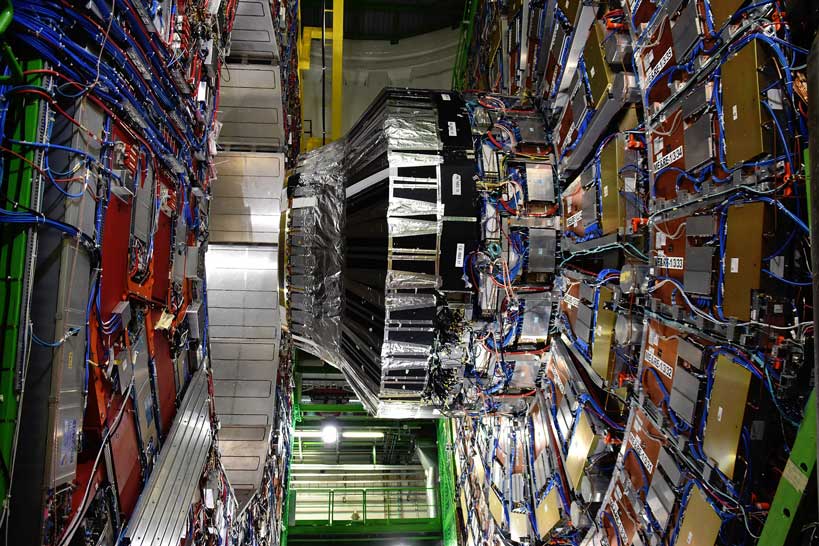
SimonWaldherr, CC BY-SA 4.0 https://creativecommons.org/licenses/by-sa/4.0, via Wikimedia Commons
The Large Hadron Collider (LHC) has been operational since 2008, and despite fears that it could destroy the Earth, it has not caused any catastrophic events.
The LHC has produced numerous groundbreaking discoveries in particle physics, including the discovery of the Higgs boson particle in 2012, which led to a Nobel Prize in Physics. The experiments conducted at the LHC have also provided new insights into the nature of dark matter and the origins of the universe – and failed predictions.
The LHC’s safety measures have been designed to prevent any potential catastrophic events. The probability of the LHC creating a black hole or a strangelet particle is extremely low, and any such events would be immediately detected and addressed.
The LHC has also undergone rigorous safety assessments, with experts from around the world analyzing the potential risks and ensuring that the experiments are conducted safely. The LHC is constantly monitored, and any concerns are immediately addressed by the team of scientists responsible for its operation.
In short, the Large Hadron Collider has not caused any catastrophic events, nor has it put the Earth or humanity at risk. Instead, it has produced groundbreaking scientific discoveries and helped to expand our understanding of the universe.
The LHC’s legacy will be one of scientific progress and discovery, demonstrating the power of human curiosity and the potential of scientific research to advance knowledge and understanding.
The Shocking Truth About Nostradamus' End Times Prophecy: Has It Already Begun?

Throughout history, there have been many apocalyptic doomsday predictions, some more convincing than others. One of the most notable of these predictions comes from none other than Nostradamus, a 16th-century French astrologer and physician known for his prophetic writings.
Nostradamus has been credited with predicting a number of historical events, from the rise of Napoleon to the assassination of John F. Kennedy. However, perhaps his most ominous predictions are those related to the end times.
According to Nostradamus, the end times will be marked by a series of catastrophic events that will leave the world in ruins. Many of these predictions are shrouded in mystery and symbolism, making it difficult to discern their exact meaning. Some believe that Nostradamus foresaw natural disasters, such as earthquakes and floods, while others believe he predicted man-made catastrophes like wars and nuclear attacks.
How It Was Predicted To Play Out
According to Nostradamus, the End of Times would be characterized by a series of catastrophic events that would result in widespread destruction, suffering, and death. His prophecies include references to natural disasters such as earthquakes, floods, and famine, as well as wars and other man-made catastrophes.
One of the most chilling predictions from Nostradamus is the appearance of a third Antichrist who will lead the world to its destruction. He wrote that this figure would be a “man of blood” who would cause devastation and chaos on a global scale.

Nostradamus also predicted that there would be a great comet that would strike the earth, causing widespread devastation and destruction. He also foresaw a massive earthquake that would shake the foundations of the earth and trigger a series of other natural disasters.
Additionally, he believed that the end of the world would be accompanied by a series of signs and portents, including strange weather patterns, eclipses, and other unusual phenomena.
Overall, Nostradamus’ prophecies paint a bleak and terrifying picture of the end of the world. The chaos that he describes would result in the deaths of countless people and the destruction of entire civilizations.
How Has It Actually Played Out
As of now, there is no evidence to suggest that the End Times as prophesied by Nostradamus have occurred or are currently unfolding.
Nostradamus was a 16th-century French astrologer, physician, and seer who wrote a collection of prophecies known as “Les Propheties.” These prophecies were written in four-line verses and covered a range of topics, including wars, plagues, and natural disasters. Many of Nostradamus’ followers believe that his prophecies foretell a coming global catastrophe that will mark the end of the world as we know it.
However, Nostradamus’ prophecies are often cryptic and open to interpretation, leading to a range of possible outcomes. Some believers in the End Times as prophesied by Nostradamus point to current world events as evidence that his predictions are coming true. Others dismiss these claims as baseless.
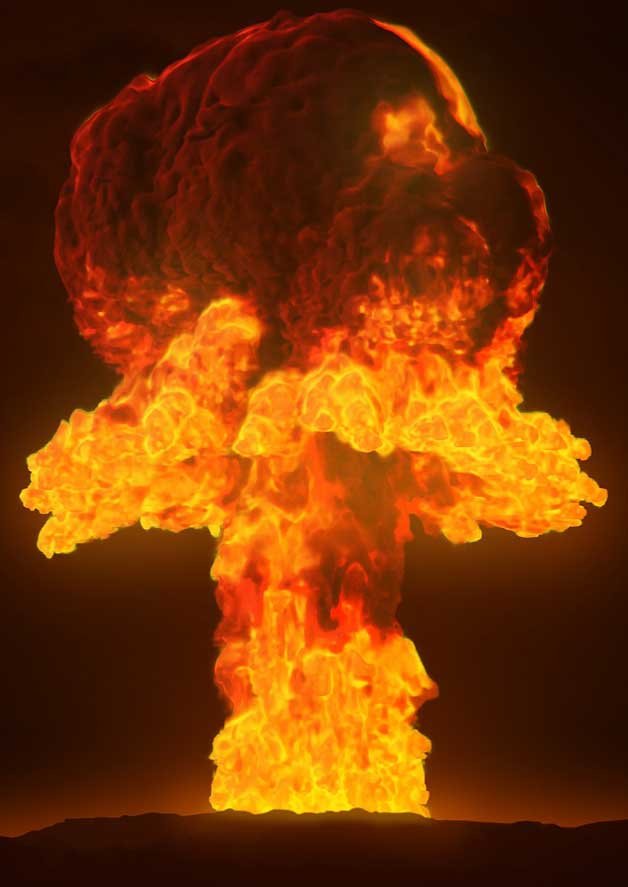
Despite the lack of evidence, the idea of an impending apocalypse continues to capture the public’s imagination, with various individuals and groups making predictions about the end of the world based on a range of beliefs and prophecies.
The End Times as prophesied by Nostradamus remain a topic of debate and speculation, with no clear indication of whether they will come to pass or not.
Survived the End of the World? Congratulations! Let's celebrate with a New Beginning.
From Y2K to the Rapture, doomsday predictions have been around for centuries. Throughout recorded time, many predictions have been made but none of them ended up being accurate. Although these predictions may seem far-fetched or even silly at first glance, it is important to remember that there are real implications when people make inaccurate claims about the future.
It is essential for us as a society to be mindful and critical when evaluating information we hear about potential catastrophes or apocalyptic events because our decisions can have serious consequences on our lives and livelihoods.
What do you think? Share your thoughts below in the comments.


